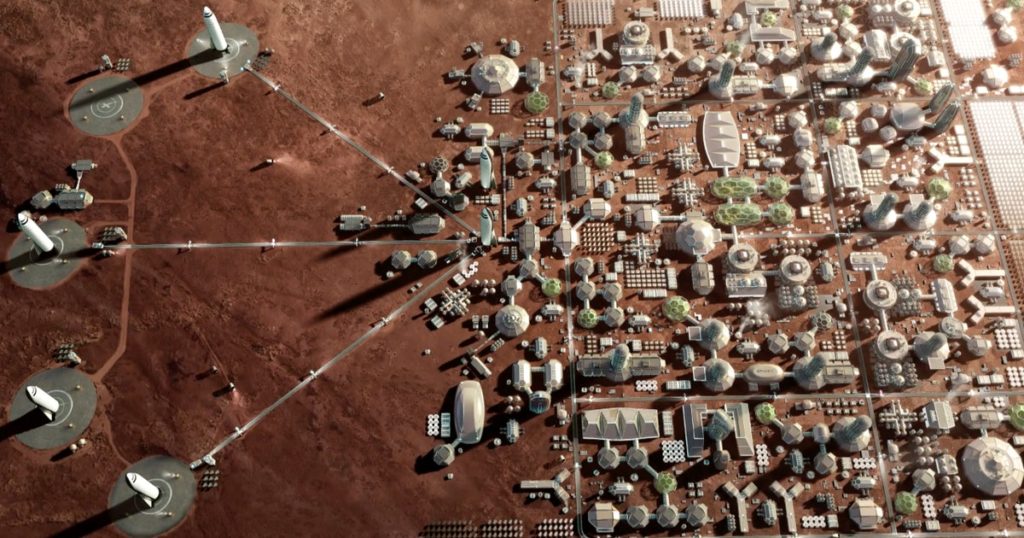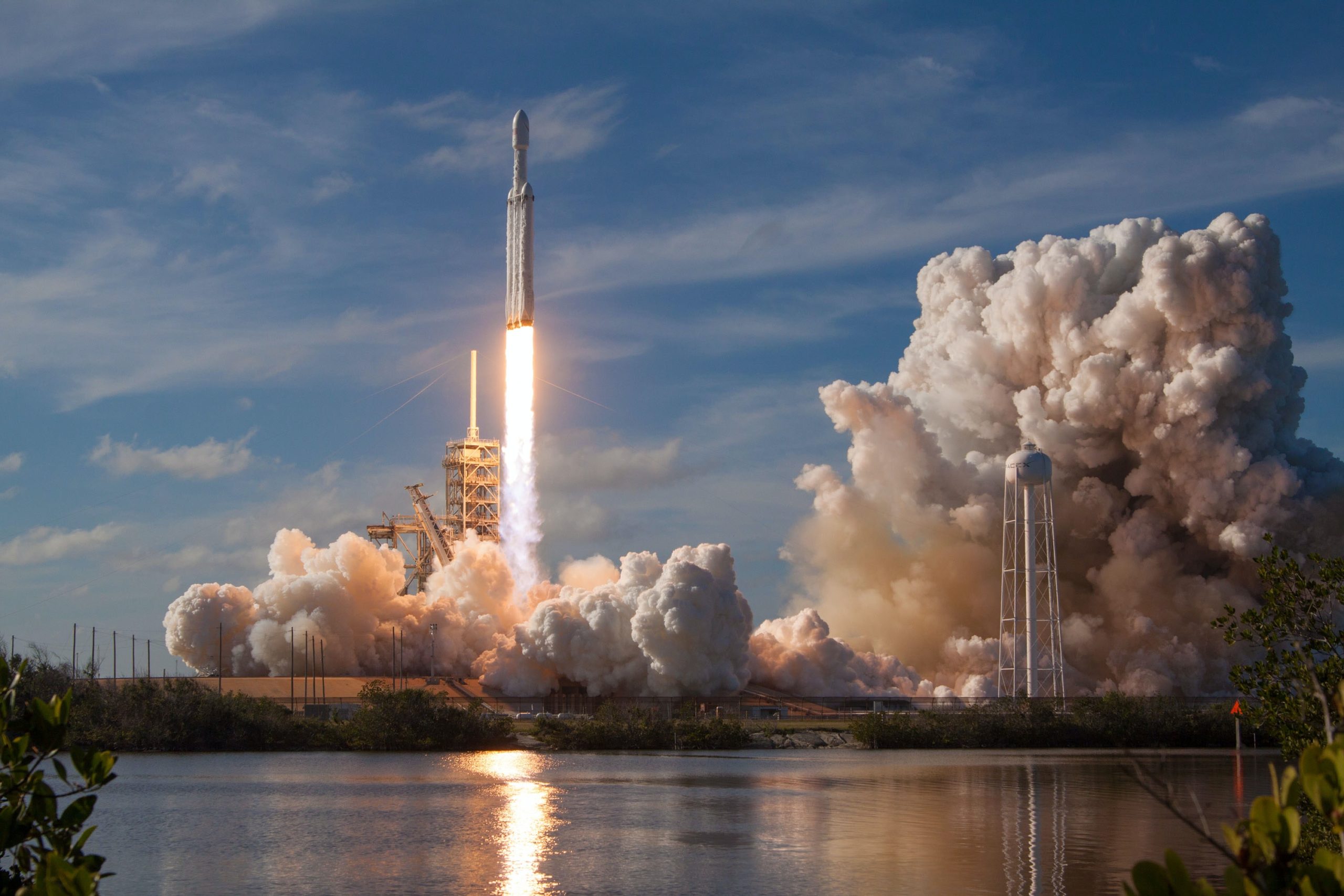Tech billionaires like Elon Musk and Jeff Bezos have attracted convoys of devout followers, some bordering on the fanatical. But like with many cults of personality, you only need to scratch beneath the surface to realise that their promises won’t be able to save humanity.
On Tuesday, Amazon founder Jeff Bezos launched his New Shepard rocket on its maiden human voyage to the edge of space. This came just over a week after fellow billionaire Richard Branson made his own well publicised trip to the barrier between the earth’s atmosphere with his own Virgin Galactic aircraft.
Of course, these feats aren’t really anything to write home about in the grand scheme of space travel. Bezos trip also coincided with the 52nd anniversary of when NASA, a tax funded space agency, had humankind step foot on the moon in an age when a computer took up an entire office area. The Soviet Union, a socialist nation, achieved the feat of sending the first human into space proper over 60 years ago with cosmonaut Yuri Garagin completing an entire lap around the earth’s orbit in the process.
Jeff Bezos personal net worth of $205 billion could have paid for the entire Apollo space program of the 1960s, estimated to have cost the US $175 billion when adjusted for inflation, and even after still have a spare $30 billion in the bank.
As reported in the The Washington Post, a newspaper Bezos bought for $250 million in 2013, not only does he want to cash in on the booming space tourism industry with his company Blue Origin, but also envisions a future where “millions of people are working and living in space”.
Elon Musk, of Tesla and SpaceX, arguably the most prominent billionaire today with a net worth of $160 billion, has been much more vocal about his plans for space exploration, famously proclaiming that humanity’s future rests on colonising mars.
It’s not surprising that Bezos and Musk’s talk of a future where humanity flourishes amongst the stars may sound appealing if not enticing to the masses. Most of us fantasised at some point as children of becoming astronauts headed for the moon or the red planet and dreamed of what lies beyond the earth’s atmosphere. But the truth is that the billionaire space race they’d like you to see, ‘a noble effort to inspire and push humanity forward’ is little more than window dressing for something much more greedy and exploitative.
Space exploration but for who?
In 1967, during the midst of the space race between the United States and the USSR, the two sides came together to consolidate an agreement known as the Outer Space Treaty. There were two main cruxes of the agreement; first, that nuclear bombs and weapons of mass destruction would be banned from space (unfortunately the agreement didn’t extend to military activity, google Donald Trump’s Space Force or Ronald Reagan’s Star Wars) and secondly, but perhaps just as important, that space and celestial bodies must be free for all nations to explore and that no state shall be allowed to lay claim to any region. The treaty states:
“The exploration and use of outer space shall be carried out for the benefit and in the interest of all countries, irrespective of their degree of economic or scientific development and shall be the province of all mankind.”
This still remains in place to this day, with more than 100 countries signing onto what is now the basis of international space law.

However, the glaring problem with the Outer Space Treaty is that it never explicitly stated that private corporations couldn’t extract resources from space. Allowing billionaires like Elon Musk and Jeff Bezos to set up bases on the Moon or Mars.
That’s why in 1970, the UN’s Committee on the Peaceful Uses in Outer Space proposed a legal designation for outer space, titled the Common Heritage of Mankind. It would support the distribution of revenues derived from space to all nations, as they had determined that space could not be owned by humanity. It also made clear that it had to be preserved from potential exploitation by nations and corporations.
The committee made their beliefs clear, saying “it does not seem justifiable… that space activities should evolve in a climate of total laissez-faire, which would conceal under the cloak of rationally new ways for an abusive exercise of power by those who exert control over technology.”
This proposal would lie in limbo for the next decade as it received push back from opponents including the United States and the USSR until it was eventually withdrawn, fading into obscurity.
Returning to today, private companies are now looking to rake in the wealth that can be produced from collecting resources and land in space, abusing the natural setup of the cosmos to do so. Bezos has spoken of his plans to mine the water stored in the moon’s surface at the launch of his space project Blue Moon, which he hopes to have landed on the lunar surface by 2024. Elon Musk has repeatedly floated the proposal of nuking Mars to change the climate to be more suitable for humans in glass domes that he says will be operated and governed by SpaceX itself; dismissing the rules of earth bound international law.

For all the talk from them about how they will conduct their business in space there has been very little explicit indication of who it will benefit. Only ever presenting vague sci-fi fodder like ‘building colonies for future generations’. Musk claimed that his tickets to Mars would cost somewhere between $500,000 to $1 million per person, an unobtainable amount of wealth for even the average middle-class household across the developed world let alone for anyone else.
Or supposedly as he likes to say on Twitter you can just pay it off by submitting to the demands of working for SpaceX… and only SpaceX. The shadows of 17th to 19th century private colonialist enterprises like the Dutch East India company are indicated in Musk’s mindset.
In analysing the sparse talk of the pricing for space travel proposed by these new private space companies arises a glaring contradiction and inconsistency between their public promise of a noble venture for all humanity and the actual proposed cost for customers to explore the stars.
Slate magazine writer Aaron Mak explored the potential costs Jeff Bezos’ Blue Origin may demand from customers for a ticket to his new space tourism service.
“Blue Origin has been fairly tight-lipped about its pricing, though it did say on Tuesday that ticket sales are now to the general public… Blue Origin did not respond to an inquiry about the price of tickets, though Reuters reported that the company initially estimated in 2018 that they would run for $200,000 to $300,000.”
Meanwhile, Richard Branson’s Virgin Galactic is estimated by experts to cost between $300,000 and $400,000 per passenger for a 10 minute joyride.
What about here back on Earth?
I’ve read some commentators argue that space tourism can be in fact a good thing in combating issues such as the welfare of humanity and environmental degradation. That the wealthy being able to view the world in all it’s beauty could influence them to take more action. Astronomer Alan Duffy wrote an opinion column for the Sydney Morning Herald last Friday, sharing his idealistic belief that space flights for the rich will serve as a force for good. He believes in the transformative impact of the sublime experienced by astronauts.
“What happens when our wealthy see a fragile Earth?” said Mr Duffy. “The world’s wealthiest people will be the first space tourists, but they will also experience first-hand the overview effect. With their money, power, and influence, we can only imagine how they could change the planet for the better if they are moved in the way that former military pilots have been.”
It would be a mistake to dismiss the potential of the awe inspiring experience of viewing earth from space as a transformative force. However, Mr. Duffy fails to account for the actions that billionaires like Musk and Bezos already pursue down here on earth.
Jeff Bezos’ Amazon is infamous for its poor working conditions in their warehouses across the globe and staunch anti-unionism. Even in Australia, Amazon workers are pushed to meet strict quotas, risking their wellbeing and employment. An anonymous employee told the ABC that they “resent the fact that I’m not a robot and that I’m made of flesh and bone.”
Elon Musk is no better with his crafted pedestal of eco-futurism and his ‘factory of the future’. Employees of Musk’s Tesla factory in California told The Guardian in 2017 that the culture was one where workers are put under immense pressure with long hours. Even if it meant working through pain and injury.
One former Tesla production technician, Jonathan Galescu, told them it wasn’t an unusual sight to see “people pass out, hit the floor like a pancake and smash their face open.” Musk, much like Bezos, is also aggressive on workers’ rights. The US Labor Relations Board ruled that Tesla had violated existing labor laws after he made a Tweet discouraging his employees from unionising, a decision Tesla is now appealing.
Along with other tech companies like Apple and Microsoft, Tesla has also been responsible for participating in the exploitation of miners in the Global South. Children as young as six have died or been injured in the extraction of lithium in the Democratic Republic of Congo.
So what does this mean?
If there is one thing that we can take away from the start of the billionaire space race is that in the age of widening wealth inequality and the climate crisis we shouldn’t fall into the trap of salvation proposed by Elon Musk or Jeff Bezos.
Bezos continued his rhetoric of designated saver of earth and humanity when he touched back down to earth, crediting the exploitative system that launched him up to the atmosphere in the first place.
“I want to thank every Amazon employee and every Amazon customer, because you guys paid for all of this,” Mr Bezos told reporters. “We’re going to build a road to space so that our kids and their kids can build a future,”
Now the question is who these kids are going to be. The inheritors of generational fortune built off the labor of oppressed workers and exploitative neo-liberal capitalism? Servants of tech oligarchs governing colonies?
Those questions are yet to be answered. Here on Earth we need to make sure that space doesn’t become yet another playground of privatisation and individual wealth hoarding and delusion.
Additionally, counter-intuitive to Bezos’ proclaimed commitment to fight climate change and to “keep the earth as this beautiful gem of a planet” he is now talking of simply taking “all heavy industry, all polluting industry and moving it into space.”
If we are going to venture into space, it should not be instigated by the interests of billionaires, but by the collective interest of Earth, following the sentiment of the Outer Space Treaty that the final frontier “shall be the province of all mankind.”

